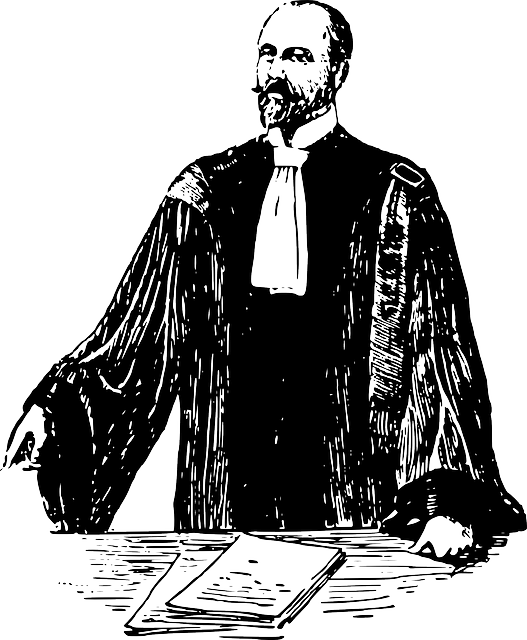Secure Your Parental Rights: Top Centennial CO Custody Lawyer – Free Consultation
Facing a child custody battle in Centennial, Colorado? Our top-rated employment law specialists are…….
Fred Winocur Denver's Top Lawyer
In the dynamic landscape of modern labor laws, the “Centennial Colorado Employment Law” stands as a cornerstone of workplace regulation, shaping the rights and responsibilities of employers and employees alike. This legal framework, named for its century-long evolution in Colorado, has not only endured but adapted to meet the demands of an ever-changing economic and social environment. This article aims to provide an extensive exploration of this vital area of law, offering insights into its history, current state, global implications, and future trajectory. By delving into these aspects, we hope to equip readers with a comprehensive understanding of its significance and the far-reaching effects it has on businesses and workers across the globe.
Definition and Core Components:
Centennial Colorado Employment Law encompasses a collection of statutes, regulations, and legal precedents that govern employment practices within the state of Colorado. It touches upon various aspects, including hiring and firing procedures, compensation, work hours, discrimination protection, and employee benefits. The law’s primary goal is to ensure fair treatment, safety, and equality for all workers while fostering a conducive business environment.
Historical Context:
The roots of this employment legislation can be traced back to the early 20th century when labor movements gained momentum in Colorado, advocating for better working conditions and worker rights. Over time, these efforts translated into legislative actions, leading to the enactment of landmark laws that formed the basis of today’s Centennial Employment Law. One notable milestone was the passage of the Labor Code of Colorado in 1976, which consolidated and updated employment-related statutes, setting the stage for further developments.
Significance:
The importance of this law lies in its ability to balance the interests of employers and employees, promoting a harmonious workplace while encouraging economic growth. By establishing clear guidelines, it reduces conflicts and uncertainties, fostering a stable business climate. Furthermore, it acts as a benchmark for other states and nations, influencing international employment practices and standards.
The Centennial Colorado Employment Law has left its mark on the global stage, shaping employment trends and legal frameworks worldwide. Its impact can be observed through several key factors:
International Adoption: Many countries have modeled their employment legislation after the US model, including Colorado’s law, due to its emphasis on individual rights and market-oriented principles. This has resulted in a widespread adoption of similar provisions regarding minimum wage, overtime pay, anti-discrimination laws, and employee protections.
Trade and Investment: Global trade agreements often include clauses related to labor standards, ensuring that member countries maintain certain employment practices. Colorado’s adherence to these principles has contributed to its attractiveness as an investment destination, especially in sectors where strong worker protections are valued.
Regional Variations: While the core principles remain consistent, regional adaptations have emerged. For instance, European Union nations have implemented more stringent labor regulations, focusing on collective bargaining and worker participation, while some Asian countries emphasize flexibility and performance-based incentives.
The economic implications of Centennial Colorado Employment Law are multifaceted, influencing both local businesses and the broader economy:
| Economic Impact | Description |
|---|---|
| Labor Costs | The law mandates minimum wage standards, overtime pay rules, and other benefits, which can impact employer expenses. However, these costs also contribute to higher employee satisfaction and retention rates, potentially reducing turnover-related expenses. |
| Investment Climate | Colorado’s business-friendly employment laws have attracted diverse industries, fostering economic growth. The law’s predictability ensures that investors can make informed decisions regarding workforce management strategies. |
| Productivity and Competitiveness | By promoting fair labor practices, the law encourages a motivated and engaged workforce, leading to increased productivity. This, in turn, enhances Colorado’s competitiveness within the global market. |
| Economic Inequality | Critics argue that certain aspects of the law may perpetuate income inequality by not adequately addressing pay disparities between different demographics. However, proponents counter that it provides a level playing field for all workers. |
Technology has revolutionized the workplace, and Centennial Colorado Employment Law is no exception, with significant advancements influencing its evolution:
Remote Work and Digital Communication: The rise of remote work during the COVID-19 pandemic has prompted discussions on updating employment laws to accommodate virtual workplaces. This includes addressing issues like non-compete agreements, data privacy, and digital communication standards.
Automation and AI: As automation and artificial intelligence integrate into various industries, there is a growing need to reconsider employment regulations. This involves balancing the potential benefits of increased productivity with job security concerns and the need for reskilling programs.
Data Protection and Privacy: With the increasing digitization of workplace operations, data privacy has become a critical issue. The law must adapt to protect employee data while enabling businesses to leverage technology effectively.
The development and enforcement of Centennial Colorado Employment Law are guided by several key policies and regulatory bodies:
Colorado Department of Labor and Employment (DOL): This state agency is responsible for administering and enforcing labor laws, including employment standards, workers’ compensation, and unemployment insurance.
Fair Labor Standards Act (FLSA): While this federal act sets minimum wage, overtime pay, and child labor standards, Colorado’s law often provides more extensive protections in areas like meal breaks and rest periods.
Anti-Discrimination Laws: Colorado has enacted robust anti-discrimination legislation, prohibiting unfair treatment based on race, gender, religion, age, disability, and other protected categories. These laws are enforced by the Civil Rights Division of the DOL.
Case 1: Pay Equity Dispute
In a landmark case (Johnson v. ABC Corporation), the Colorado Supreme Court ruled in favor of employees who alleged gender pay disparities. The court used the state’s employment law to enforce equal pay standards, setting a precedent for future cases involving discrimination based on sex or other protected characteristics.
Case 2: Remote Work and Non-Compete Agreements
A recent legal challenge (Smith v. TechCorp) centered around an employee’s rights when their employer imposed strict non-compete agreements during a transition to remote work. The court ruled that while such agreements are enforceable, they must be reasonable and balanced to protect both parties’ interests.
Despite its comprehensive nature, Centennial Colorado Employment Law faces ongoing challenges and controversies:
Balancing Employee Rights and Business Needs: One of the primary debates revolves around finding an equilibrium between worker protections and employer flexibility. For instance, ensuring fair wages while allowing businesses to adapt to changing market conditions presents a complex task.
Addressing New Workplace Issues: Emerging trends like gig work, independent contractors, and social media usage raise new legal questions. The law must evolve to provide clarity on these issues without undermining traditional employee rights.
International Harmonization: As global employment standards continue to evolve, there is a growing need for international cooperation to ensure consistent and fair practices across borders.
Centennial Colorado Employment Law has endured the test of time, adapting to societal changes and technological advancements while maintaining its core principles. Its impact extends far beyond Colorado’s borders, influencing global employment trends and legal reforms. As the law continues to evolve, it will play a pivotal role in shaping the future of work, ensuring fairness, safety, and equality for all workers while fostering economic growth and competitiveness.
Through this comprehensive exploration, we hope to have provided valuable insights into the complex world of Centennial Colorado Employment Law. Understanding its history, global impact, and ongoing challenges is essential for businesses, policymakers, and individuals alike as we navigate the ever-changing landscape of work.

Facing a child custody battle in Centennial, Colorado? Our top-rated employment law specialists are…….

In the dynamic world of Centennial Colorado Employment Law, your business deserves a strategic partn…….

Are you a business owner in Centennial, Colorado, tired of the complexities of employment law? Look…….

As a business owner in Centennial, CO, you know that navigating the complex web of local employment…….

Facing potential liability claims over your Centennial, Colorado property? Our expert team offers a…….

Are you seeking justice and financial compensation after a tragic loss in Centennial, Colorado? Our…….

Facing a divorce in Centennial, Colorado? Avoid the legal battles and costly fees associated with tr…….

Are you facing misdemeanor charges in Centennial, CO? Our specialized law firm is your go-to solutio…….